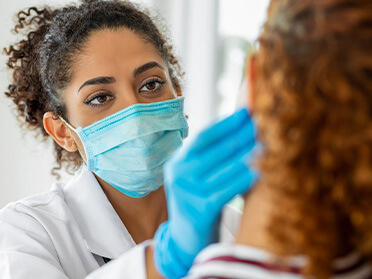Regenerative Orthopaedic Surgery at UPMC
Regenerative orthopedic surgery rebuilds tissues and cartilage to control pain and increase motor capacity.
This treatment is based on the use of stem cells that, once grafted into the joint space, stimulate the production and regeneration of cartilage after a traumatic or chronic-degenerative process. They also improve the lubrication of the intra-articular compartment.
Book a Regenerative Orthopaedic Surgery Treatment
At UPMC, we offer regenerative orthopaedic surgery services at the following facilities:
Regenerative Orthopaedic Surgery: How it Works
The surgery can be performed under local or general anesthesia. In the post-operative period, a compression sheath is applied to the surgical area to reduce any bruising or swelling.
It is divided into the following phases:
- Withdrawal – Fat Harvesting. It is carried out in the various natural fat deposits present in the body, such as the abdomen, trochanteric region, and inner surface of thighs and knees.
- Processing of the fat taken – Fat Processing The fat taken is purified, usually by centrifugation.
- Transfer of adipocytes in the area to be treated – Fat Injection. We proceed to the cartilaginous cleaning, removing any damaged portions, then the adipose tissue is grafted inside the joint cavity.
Regenerative Orthopaedic Surgery: the Benefits
The intervention of regenerative orthopaedic surgery involves the collection and grafting of adipose mesenchymal cells in the same patient. It is practically an autotransplant, in which the patient is simultaneously donor and recipient. This offers the following advantages:
- Absence of complications, such as rejection of transplantation or transmission of infectious diseases from another donor.
- Good engraftment of the transplanted tissue.
- Fast recovery times with good results in the medium and long term.
Regenerative Orthopaedic Surgery: When to Perform it
Regenerative orthopaedic surgery is indicated in case of:
- Degenerative and post-traumatic events affecting the knee and hip, and the shoulder and elbow.
- Post-traumatic injuries to cartilage and muscle-tendon tissues.
- Osteoarthritis, chronic degenerative disease characterized by erosion of articular cartilage, pain, stiffness and crackling.
- Chronic-degenerative arthritic processes affecting the joints.

We offer medical services and services on a private basis or in agreement with the main insurance companies. Some of our services are also affiliated with the National Health System.
For more information on active agreements, visit:
